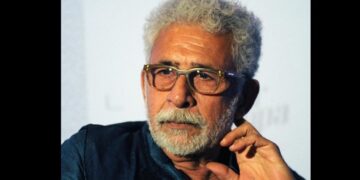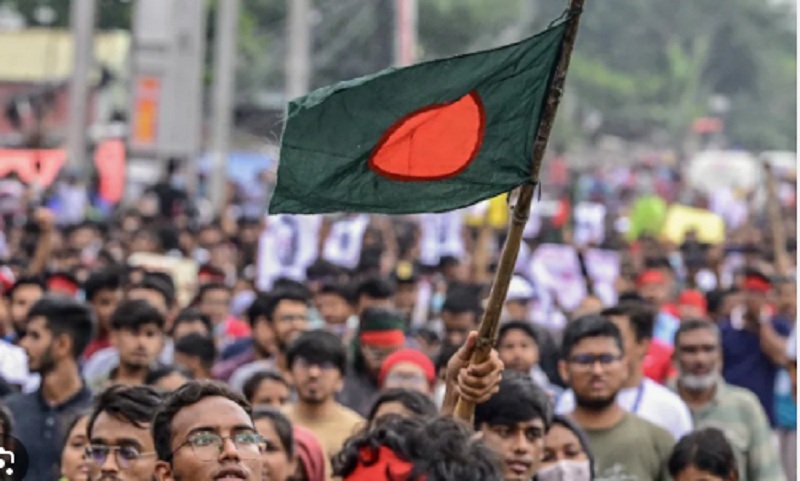The good news from Bangladesh is that in the ongoing political maelstrom, dissenting voices are increasingly being raised and heard.
These are voices which come from rickshaw pullers, common citizens and political figures. Those who seized power in the country in August last year clearly appear to have run out of steam.
The many reform commissions which have now completed their assignments and submitted their reform proposals to Muhammad Yunus are not sure that their suggestions will be accepted.
And of late, the advisors around Yunus have refrained from speaking up on the issues that assail the country.
Politics, as distinct from the chaos unleashed in August 2024 by supporters of the current interim regime and the mayhem resorted to by Islamist extremists in these past eight months, appears to be making a comeback.
Part of the credit goes to the Bangladesh Nationalist Party, whose leaders have in recent weeks made it clear that they are not ready or willing to give the young followers of Muhammad Yunus an easy ride on the national political landscape.
The formation of the National Citizens Party by these young elements has not impressed the BNP or the country at large. The new party, derisively referred to as the King’s Party, has so far failed to get any traction.
The recent iftar reception it organised, at enormous expense, at an elite hotel, took flak from various quarters. Questions were raised about the source of the funds spent on the party.
So what has the BNP been doing? Even as it prepares for the return from exile of its acting chairman Tareque Rahman, it has been making it known that all decisions, especially reforms initiated by the Yunus-led interim government, will be scrutinised by a parliament elected at the next round of voting before they are adopted or rejected.
Yunus has, of course, spoken of elections taking place between the end of this year and early next year, but that has not stopped the BNP leadership from spotting the holes in the announcement.
Indeed, BNP Secretary General Mirza Fakhrul Islam Alamgir has publicly noted what he has called the vague nature of the Chief Advisor’s election-related comments.
Aside from the election issue, the BNP has come down hard on the pro-Yunus elements who have outrageously sought to equate the student-led agitation of July last year with Bangladesh’s War of Liberation in 1971.
Mirza Alamgir minced no words in condemning such crude attempts to undermine the nation’s history as it was forged fifty-four years ago.
Those who deliberately undermine history as also those who opposed Bangladesh’s liberation, according to the influential BNP leader, have been going out of their way to give a new spin on the history of a war that left three million Bengalis dead at the hands of the Pakistan occupation army in 1971.
And Mirza Alamgir has not been alone in ridiculing all these crude attempts to hollow out the story of Bangladesh’s strenuous struggle against Pakistan five decades-plus ago.
Major (retired) Hafizuddin, a reputed freedom fighter and leading figure in the BNP, has warned the Yunus enthusiasts against any move to place 1971 on a par with the disturbances that underscored 2024.
Likewise, Mirza Abbas, another senior BNP figure, has made it known that no move to downplay the War of Liberation by any quarter will be tolerated. Only the other day, Col (retired) Oli Ahmed, who heads the Liberal Democratic Party (LDP) and is a freedom fighter who earlier served as a minister in a BNP government, noted that it was laughable for anyone to compare 1971 with 2024.
A war for national freedom, he asserted, is part of history which cannot and will not be erased by anyone.
And all of this is a sign of how the tide is turning in Bangladesh. In the past couple of weeks, Awami League supporters have staged rallies in parts of the country, acts which are a hint of a slow return to centre stage by the party, which was in power between 2009 and 2024.
For her part, Sheikh Hasina has in her audio speeches been exhorting her party faithful to step up resistance to the Yunus regime, though she has not taken any steps toward reorganising the Awami League.
Mohammad A. Arafat, the young politician who served as minister of state for information and broadcasting in the Awami League government before its fall last year, has been asserting, again in audio interviews, that Sheikh Hasina remains the leader of the party.
In other words, any move or conspiracy to keep the Awami League at bay or proscribe it is being dismissed out of hand by party leaders and workers as also by informed sections of the population.
Warnings have been served by analysts of Bangladesh’s history that all past attempts to silence the Awami League, especially in 1971 and in the post-August 1975 period, ended up in embarrassment for the ruling circles of the time.
The Awami League’s position on the elections to be held at some point in time is dependent on the degree to which the vote will be free and fair.
The party will certainly not agree to take part in any election under the Yunus outfit because of its rather legitimate perception of the victimisation it has been subjected to by Yunus’ followers since last August.
That will place the interim government in a dilemma. The credibility of any election without the participation of the Awami League will come into justifiable question.
At the same time, the position of the BNP on the polls could also begin to take shape in the coming weeks, given particularly the criticism mounted against it by the student followers of the Yunus regime.
The BNP has been clear in its opinion that the Awami League is part of the national political structure.
If the Awami League refuses to come into the electoral exercise under the Yunus dispensation, it may well be that the BNP leadership, because of the Awami League position and also because of the increasing hostility of Yunus’ followers to the BNP, might go for a rethink on the issue.
Obviously, no election in Bangladesh will have substance if either the Awami League or the BNP or both of them make known their disinclination to take part in any vote under the current regime.
The interim regime is not only soft toward the Jamaat-e-Islami but also has its backing for its followers in the new NCP, a position that certainly does not inspire confidence in the country’s traditional political parties, and that includes the Jatiyo Party headed by G.M. Quader, about the fairness of the forthcoming electoral exercise.
Bangladesh’s future is yet up for grabs. Meanwhile, political figures, journalists, civil servants and businessmen taken into custody in the aftermath of the political change of August 2024 have yet to be brought to trial on the basis of proper and universally accepted legal procedures.
ALSO READ: Genocide Day: What Pakistan’s soldiers did in Bangladesh
The rule of law remains conspicuous by its absence. The media remain cowed in the face of mob violence.
It is the spring of discontent in the country.















